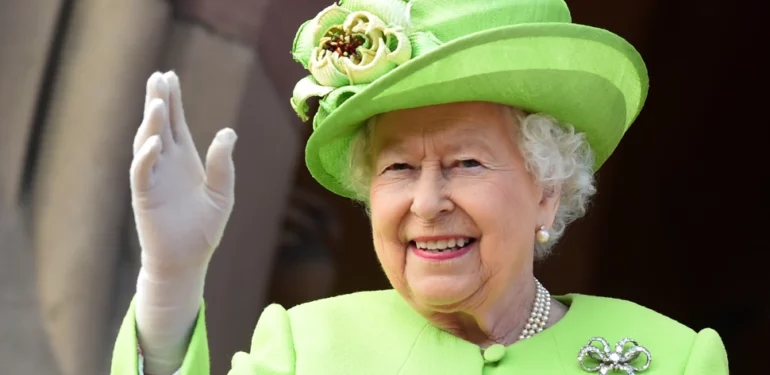Buckingham Palace has announced, The Queen has died.
Elizabeth II, 96, was the nation’s longest-reigning monarch, serving as head of state for more than 70 years.
Photo credit: EDDIE MULHOLLAND/AFP/Getty Images
The Queen came to the throne in 1952 and, over the years, saw the good, bad and in between along the way.
Her reign spanned 15 prime ministers starting with Winston Churchill, born in 1874, and including Liz Truss, born 101 years later in 1975 and appointed by the Queen earlier this week.
With her death, her eldest son Charles, the former Prince of Wales, will lead the country in mourning as the new King and head of state for 14 Commonwealth realms.
In a statement, Buckingham Palace said: “The Queen died peacefully at Balmoral this afternoon.
“The King and the Queen Consort will remain at Balmoral this evening and will return to London tomorrow.”
At Buckingham Palace in London, crowds awaiting updates on the Queen’s condition began crying as they heard of her death. The Union flag on top of the palace has been lowered to half-mast as the news spreads, and some of the world mourns and makes peace with the passing of the former Queen of England after what seemed like a neverending reign.
Elizabeth was born in Mayfair, London, as the first child of the Duke and Duchess of York. Her father acceded to the throne in 1936 upon the abdication of his brother, King Edward VIII, making Elizabeth the heir presumptive. She was educated privately at home and began to undertake public duties during the Second World War, serving in the Auxiliary Territorial Service. In November 1947, she married Philip Mountbatten, a former prince of Greece and Denmark, and their marriage lasted 73 years until his death in April 2021. They had four children together: Charles, King of the United Kingdom; Anne, Princess Royal; Prince Andrew, Duke of York; and Prince Edward, Earl of Wessex.
When her father died in February 1952, Elizabeth—then 25 years old—became Queen regnant of seven independent Commonwealth countries: the United Kingdom, Canada, Australia, New Zealand, South Africa, Pakistan, and Sri Lanka, as well as Head of the Commonwealth. Elizabeth reigned as a constitutional monarch through significant political changes such as the Troubles in Northern Ireland, devolution in the United Kingdom, the decolonization of Africa, and the United Kingdom’s accession to the European Communities and withdrawal from the European Union.
Elizabeth was the longest-lived and longest-reigning British monarch, the oldest and longest-serving incumbent head of state, and the second-longest verifiable reigning sovereign monarch in world history (Louis XIV is the longest recorded of any monarch of a sovereign country in history).
She faced public and media criticism of her family, particularly after the breakdowns of her children’s marriages, her annus horribilis in 1992, and the death of her former daughter-in-law Diana, Princess of Wales, in 1997. However, support for the monarchy in the United Kingdom remained consistently high, as did her popularity. Elizabeth died on 8 September 2022.


